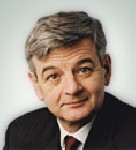 Almotamar.net, Project Syndicate
Almotamar.net, Project Syndicate - Deeply frustrated by the Bush administration�s policies, many people and governments in Europe hope for a fundamental change in American foreign policy after the upcoming presidential election. But it would take a medium-sized political miracle for these hopes not to be disappointed, and such a miracle will not happen � whoever is elected.
The Bush administration made numerous foreign-policy blunders with far-reaching consequences. But Bush neither invented American unilateralism nor triggered the transatlantic rift between the United States and Europe. To be sure, Bush reinforced both trends, but their real causes lie in objective historical factors, namely America�s being the sole world power since 1989 and Europe�s self-inflicted weakness. As long as America remains the sole world power, the next US President will be neither able nor willing to change the basic framework of America�s foreign policy.
It will, of course, be important who wins the presidency: a candidate expected to continue Bush�s foreign policy or someone ready for a new beginning. In the former case, the transatlantic rift will deepen dramatically. Four, or even eight, more years of US policy � la Bush would inflict such damage on the substance of the transatlantic alliance as to threaten its very existence.
But if America�s next president is committed to a new direction, US foreign policy might again become more multilateral, more focused on international institutions and alliances, and willing to bring the relationship between military force and diplomacy back to within its historical proportions. That is the good news.
The bad news is that, even under such auspicious conditions, the US, as a world power, will not relinquish its �free-hand� policy or forget its strength and its claim to preeminence among nations.
Another piece of bad (or good?) news is that a more multilateral American policy will increase the pressure on Europeans to take on more responsibility for international crisis management and conflict resolution � in Afghanistan, Iran, Iraq, the Middle East, Transcaucasia, and Russia, and with respect to Turkey�s future. To this common agenda, the Europeans should add Africa, climate change, and reform of the United Nations and the world trading system.
For a long time, Europe has underestimated its weight and importance. Europe�s geopolitical, economic, and social weight is quite obvious. But Europe�s integration of sovereign states� interests by means of common institutions could also be an example for much of the world.
In particular, the way Europe, in the process of its enlargement, has projected its power to achieve lasting peace across the whole continent, and fostered development by integrating entire economies, states, and societies within its institutional framework, could become a model for shaping a cooperative world order in the twenty-first century.
This modern, progressive, and peaceful model is unique and superior to all other currently available approaches to the fundamental questions of political order.
But could doesn�t mean will. Europe�s global influence is feeble because of its internal quarrels and lack of unity, which render the European Union weak and limit its ability to act. Objectively strong, subjectively infirm � that is how the EU�s present condition can be described.
The current moment of American weakness coincides with a substantially changed international political environment, defined largely by the limits of US power, Europe�s ineffectiveness, and the emergence of new global giants like China and India.
In light of these developments, does it still make sense to speak of �the West�? I believe it does, more than ever, because the rift between Europe and America leaves both sides substantially weaker in global terms.
The unilateral overstretching of American power offers a chance for a new beginning in US-European relations. America, more than in the past, will depend on strong partners and will seek such partnerships.
So what are the Europeans waiting for? Why not start now to overcome the traditional tension between NATO and the EU � especially as French policy toward NATO under President Nicolas Sarkozy has been moving in the right direction? A regular mutual presence of the Secretary General of NATO and of the head of EU foreign policy in the councils of both organizations doesn�t require much time and effort.
Why not initiate EU-US consultations at a high political level (with the Secretary-General of NATO participating in security matters) � for instance, by inviting the US Secretary of State and other members of the administration, such as the Treasury Secretary or the Administrator of the Environmental Protection Agency, to sit several times a year on the appropriate EU Council meetings? Why not have routine annual meetings between the European Council and the US President?
Periodic meetings between the appropriate committees of the US Congress and the European Parliament would also be of great importance, as ultimately both bodies will have to ratify any international treaties. The fate of the Kyoto Protocol should be a lesson to all parties involved. No such US-EU consultations would require any new agreements, so they could start without any further preliminaries.
There is one certainty that Europeans can take home from the US election campaign even today: with a more multilaterally oriented US foreign policy, Europe won�t be riding comfortably in the US world-political slipstream much longer. And that is a good thing. The new transatlantic formula must be greater say in decision-making in exchange for a greater share of responsibility.
Joschka Fischer, Germany�s Foreign Minister and Vice Chancellor from 1998 to 2005, led Germany�s Green Party for nearly 20 years.
Copyright: Project Syndicate/Institute for Human Sciences, 2008.
www.project-syndicate.org

